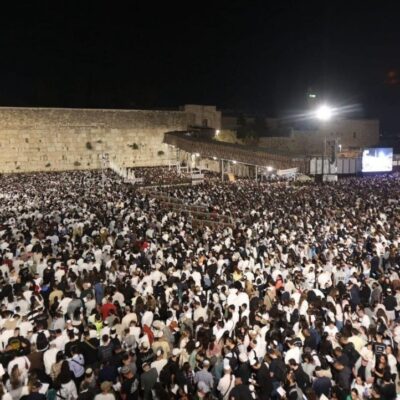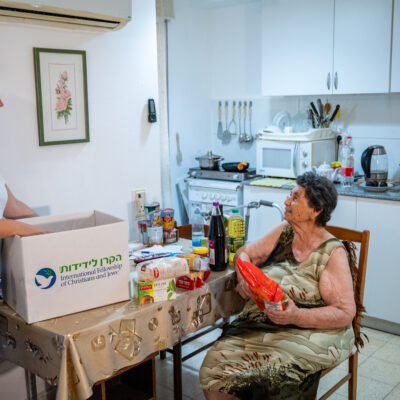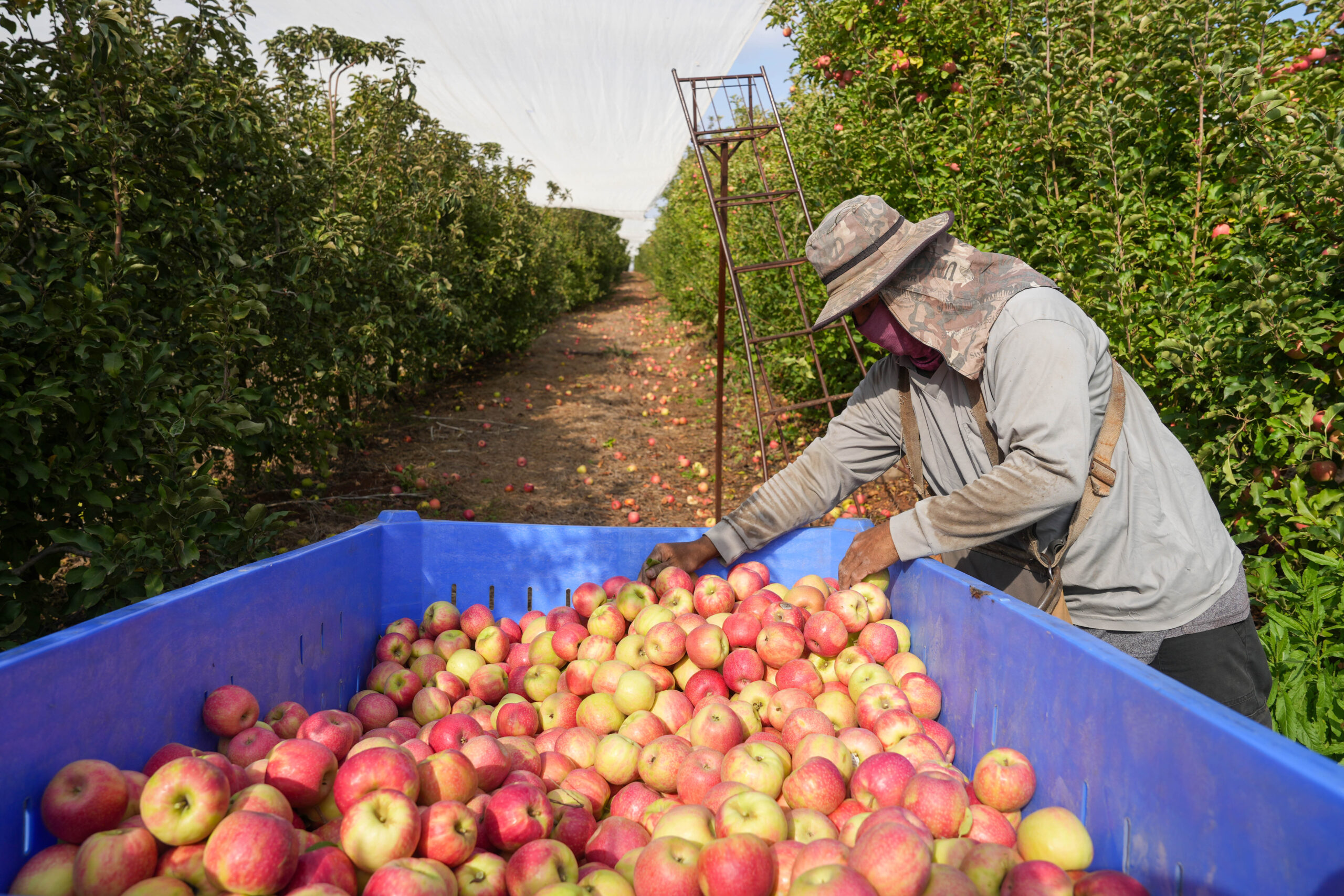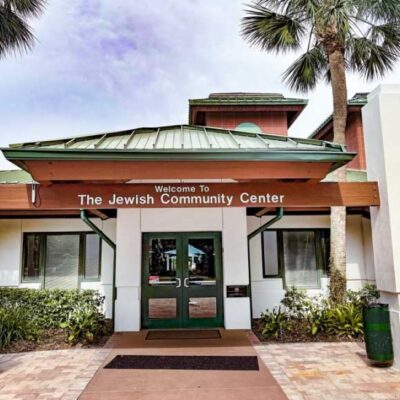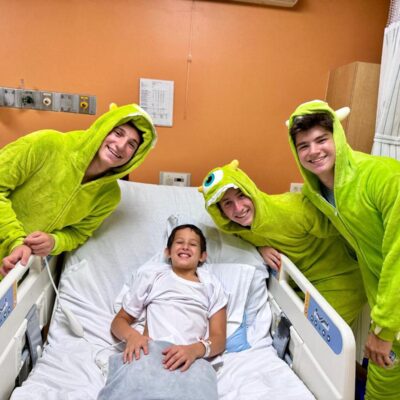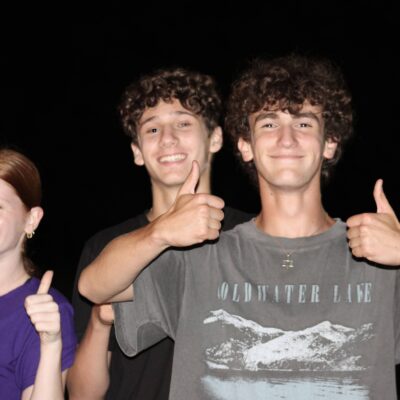Opinion
Spiritual care
Hayyei Sarah: A Shabbat of comfort and healing
In Short
The name of the Hayyei Sarah parashah literally means “Sarah’s life.” And although the parashah begins with her death, the Torah reading emphasizes her life and living.
During the long months of the pandemic, I often reflected on the story of Abraham from Parashat Hayyei Sarah. Old, alone and estranged from his children, Abraham had to navigate multiple challenges while in a new land. When Sarah, his beloved wife, died, he had to make burial arrangements in an unfamiliar environment, without the support of loved ones or a familiar setting.
As the director of the Center for Pastoral Education at The Jewish Theological Seminary, this story, and its relevance to many people’s experiences during the pandemic impacted me greatly.

PeopleImages
After emerging from the confines of our homes, experiencing a loneliness like Abraham’s, I sought to create a special Shabbat experience focused on caring for one another in local communities. Working with JTS lay leaders, we sought to raise consciousness and validate the hardships people had experienced during the pandemic, while using Jewish tradition and text as sources of consolation, healing and renewal. We set out to intentionally strengthen the relationship between synagogue communities and JTS’s vast resources in the field of spiritual care. Questions we looked to answer included: What words can one offer to another during an especially sad time? What can we say or do to help a friend or loved one who is experiencing a difficult situation? What words from Jewish sources provide comfort and renewal?
As a result, a Shabbat program called “Hayyei Sarah: Finding Comfort and Renewal in Jewish Sources” was created. Utilizing the topics of this specific parasha – death, burial, loss, grief, consolation and reconciliation – the same issues we struggled with during the pandemic – we partnered with synagogues to create special programs where we explored themes dedicated to spiritual care, healing, compassion and resilience.
Thanks to the partnership of 14 synagogues across North America, last November the first Hayyei Sarah Shabbat of Comfort and Renewal came to life. For JTS’s part, we offered the congregations a variety of materials and sources curated by JTS’s Center for Pastoral Education and designed resources to foster compassionate conversations and strategic thinking for strengthening spiritual care within the community. Using these materials, and the Hayyei Sarah concept, clergy and lay leaders at each synagogue found beautiful and unique ways to speak to the needs of their community.
Here are some of the things they did:
- Benjy Forester, a fifth year JTS rabbinical student, spoke at Sutton Place Synagogue in New York City where he serves as the rabbinic intern. Over Shabbat, he shared with the congregation how transformative his hospital chaplaincy internship, called CPE (Clinical Pastoral Education), at an acute care hospital was in his development. He said, “I became a rabbi that summer at the hospital, during my 12 hour shifts, by day and by night, roaming the various intensive care units, oncology floors, women’s health wing, inpatient psychiatric unit and beyond. Nothing could replace the training and life experience I gained from those precious encounters with all sorts of people, representing all faith traditions and none at all, in their moments of both hope and despair, suffering and healing.”
- In Hoboken, New Jersey, United Synagogue of Hoboken author and congregant Ken Schept shared his new children’s picture book, A Gift of Feathers, which draws upon Jewish sources and traditions to address themes of death and mourning in an age-appropriate way for young children. The service was followed by a lunchtime discussion moderated by the synagogue rabbi, Robert Scheinberg, focused on Jewish teachings on how to support the bereaved.
- At Congregation Har Shalom in Potomac, Maryland, Rabbi Rachel Simmons offered a dvar torah and described her own CPE training experience. Chaplain Thomas Chirdo, who is the director of Department of Mission & Pastoral Care at MedStar Georgetown University Hospital and serves as adjunct CPE faculty at JTS, also attended as a guest speaker. During a lunchtime session, Chaplain Chirdo and Hazzan Ozur Bass taught texts from Jewish and Christian sources about various responses to suffering and demonstrated the multifaith model of pastoral education employed at JTS.
- Rabbi David Glickman, rabbi at Congregation Beth Shalom in Overland Park, Kansas, emphasized the significance of the initiative for local communities after the pandemic. He said, “The Shabbat Hayyei Sarah initiative was an important way to remind us of the value of our local synagogue community, even as many of us connected with synagogues across the country online during the pandemic. While it can be valuable to experience program offerings at synagogues elsewhere, it is the local community that visits us when we are sick and supports us by attending a funeral or shiva. Shabbat Hayyei Sarah helped us to reconnect and to rebuild our caring initiatives on the local level.
The name of the Hayyei Sarah parashah literally means “Sarah’s life.” And although the parashah begins with her death, the Torah reading emphasizes her life and living. While confronting and reflecting on the challenges prompted by the pandemic and life in general, we engaged Judaism to simultaneously affirm life and experience a Torah and a Shabbat experience that was comforting and renewing.
Rabbi Naomi Kalish is the Harold and Carole Wolfe Director of the Center for Pastoral Education and assistant professor of pastoral education at The Jewish Theological Seminary.

 Add EJP on Google
Add EJP on Google